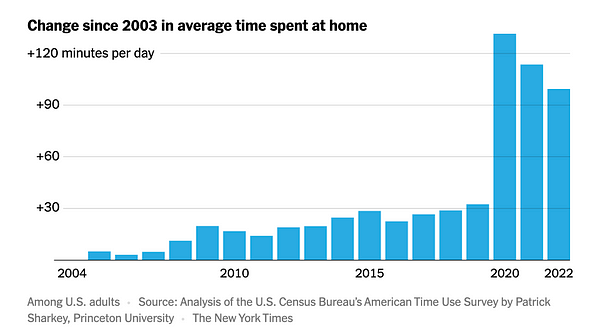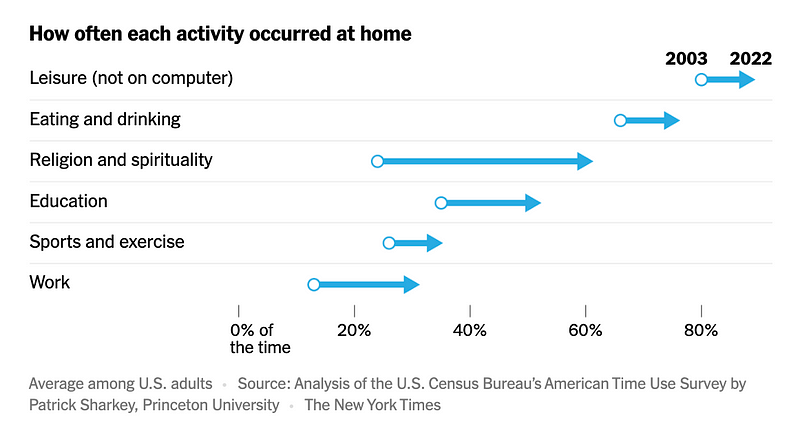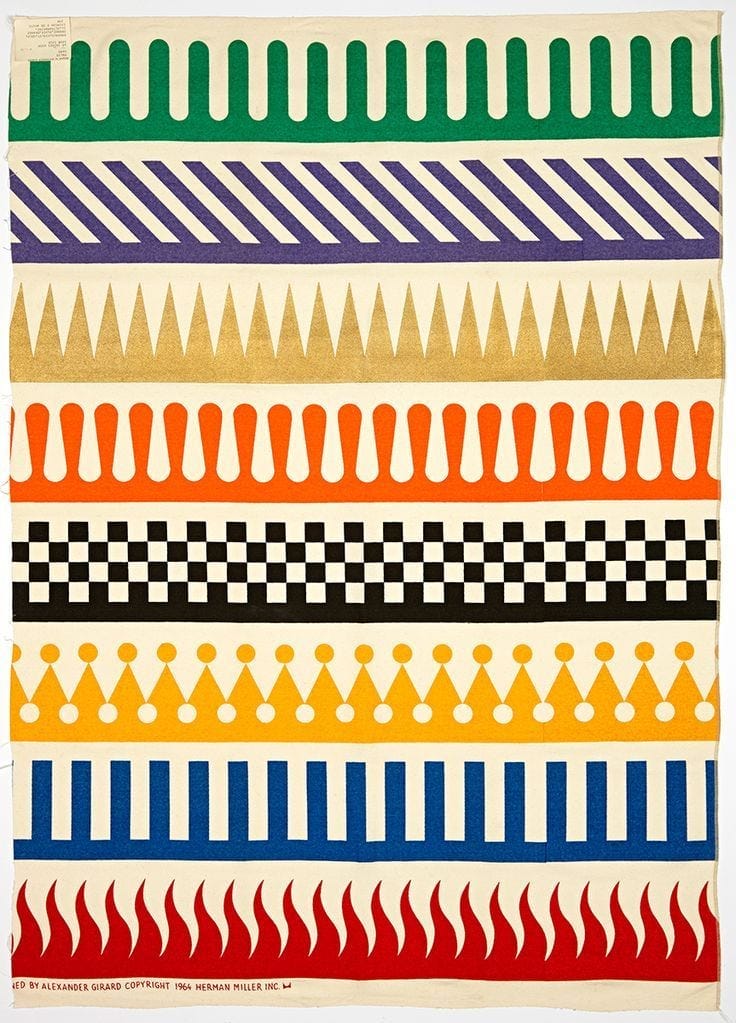Staying in is here to stay - but it shouldn’t be
These two graphs from a New York Times article astounded me.

These two graphs from a New York Times article astounded me.


The trend of staying in hasn’t bounced back to pre-pandemic levels . It seems like it is here to stay.
There are so many forces nudging us in this direction: the price of gas, the rising cost of going out, inflation, social media, streaming platforms, delivery apps, and the increase in remote work.
No one should be judged for staying in , especially considering the challenges families face in this new reality. But in many cases, a life with fewer meaningful connections can be a net negative. Loneliness kills, literally. It breeds fanaticism and disproportionately affects those already facing socioeconomic disadvantages.
Even worse, looking at the public health crisis of Japan’s hikikomori - people who have been isolated for at least six months, according to government definitions - we can see how things could further deteriorate as populations age and real estate prices remain high.
So, what can we do to start addressing this? Maybe it’s an opportunity for cities and parks to campaign for and promote free public spaces. Maybe brands could step up, not with ads showing models having beers and pretending to be friends, but by creating real, low-cost opportunities for people to connect. And of course, politicians must be pressured into providing new solutions and investments, given the overlap between social isolation and issues like health, education, and the economy.
We can’t let staying in become the default way of life.
References:
The rise of homebodies
https://www.nytimes.com/2024/10/05/upshot/americans-homebodies-alone-census.html#commentsContainer
The health effects of social isolation and loneliness
https://www.cdc.gov/social-connectedness/risk-factors/index.html
Japan’s struggle with hikikomori
https://edition.cnn.com/2023/04/06/asia/japan-hikikomori-study-covid-intl-hnk/index.html



